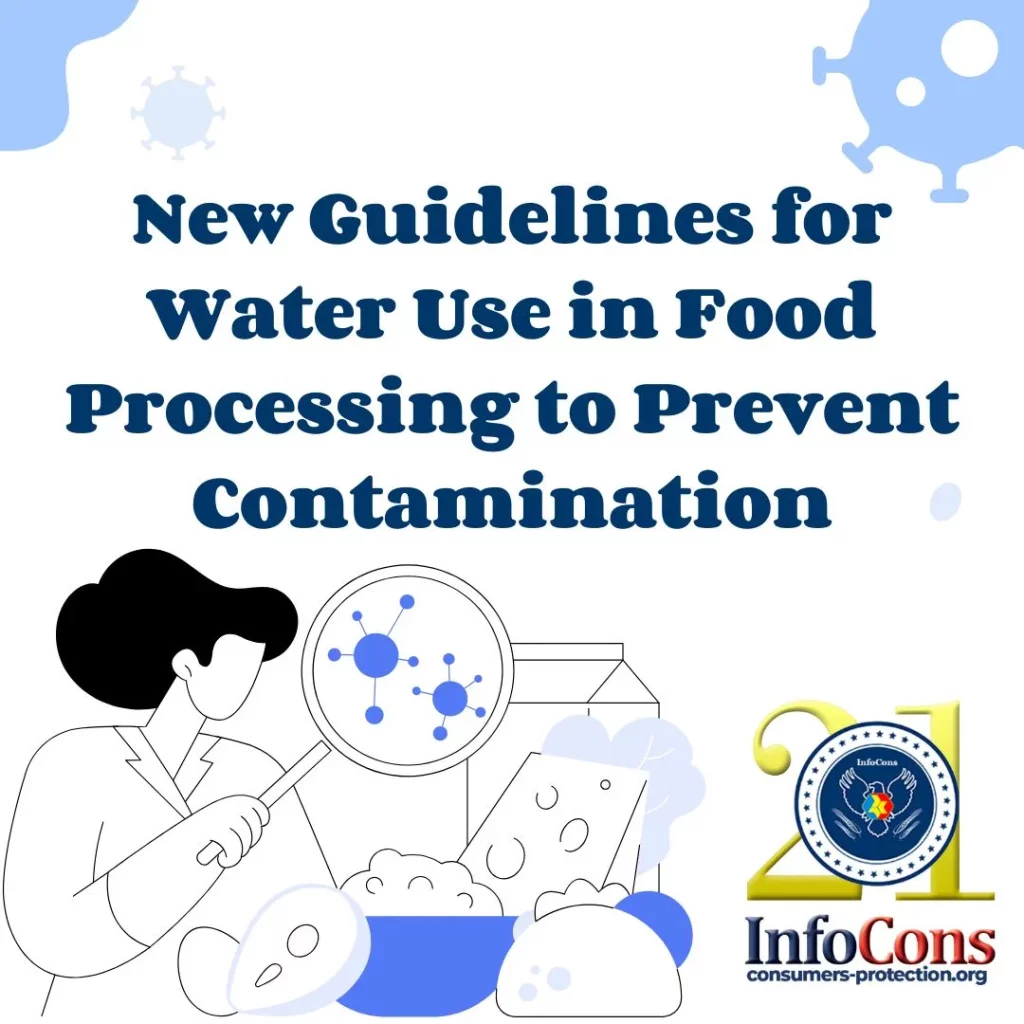
Water plays a crucial role in the processing of fresh and frozen fruits, vegetables, and herbs. However, if not properly managed, it can become a source of contamination, introducing harmful pathogens like Listeria monocytogenes and Shiga toxin-producing E. coli (STEC) into food products. To address this issue, experts from the European Food Safety Authority (EFSA) have conducted an in-depth analysis, resulting in new recommendations and the development of an online tool to improve water safety in food processing.
Preventing Contamination : The Need for Better Water Management
In recent years, major foodborne illness outbreaks in the European Union have been linked to contaminated fresh and frozen produce. Poor water quality in industrial settings not only increases health risks but is also becoming a growing concern due to climate change and reduced water availability. As a result, the food industry must adopt smarter water management strategies to ensure safety while optimizing water use.
Read also : European Data Protection Day : 73% of EU Internet Users Take Data Protection Measures
EFSA’s experts have studied the microbiological and physico-chemical properties of water used in food processing and have outlined several best practices to maintain its quality. Their findings emphasize that a combination of disinfection treatments and regular water replenishment can significantly reduce contamination risks.
The “Fit-for-Purpose” Approach to Water Management
EFSA’s recommendations are based on the “fit-for-purpose water” concept, originally developed by the Food and Agriculture Organization (FAO) and the World Health Organization (WHO). This approach suggests that water management should be tailored to specific needs, taking into account:
- The water source and potential hazards associated with it
- The intended use of the final food product (e.g., whether it will be consumed raw)
- Appropriate disinfection methods to ensure microbiological safety
By following this approach, food processors can make informed decisions on water treatment and reuse, balancing food safety with environmental sustainability.
Read also : Trends in Service Production : 2024 Insights for the Euro Area and EU
New Tools and Scientific Opinions to Guide the Industry
EFSA’s findings have led to the development of a new online tool designed to assist the food industry in improving process water management systems. This tool provides customized recommendations to help businesses assess risks and implement effective water treatment strategies.
The recommendations have been detailed in three scientific opinions, each focusing on a different category of produce:
- Fresh whole fruits, vegetables, and herbs
- Fresh-cut products
- Frozen products
By following these guidelines, food producers can enhance food safety, reduce water waste, and align with sustainable water management practices.
Read also : EU Space Transport – Trends, Challenges, and Future Outlook
A Step Forward for Food Safety and Sustainability
With growing concerns over foodborne pathogens and water scarcity, improving process water management is more important than ever. EFSA’s research provides valuable insights and practical solutions for the food industry, ensuring that consumers can enjoy safer, high-quality fresh and frozen produce. By adopting these new guidelines and using the online tool, businesses can contribute to both public health and environmental conservation.
Source : European Food Safety Authority
InfoCons – European Organization for Consumer Protection and Promotion of Programs and Strategies , a full member of the World Organization Consumers International, founding member of the Federation of Consumer Associations, and member of ANEC .